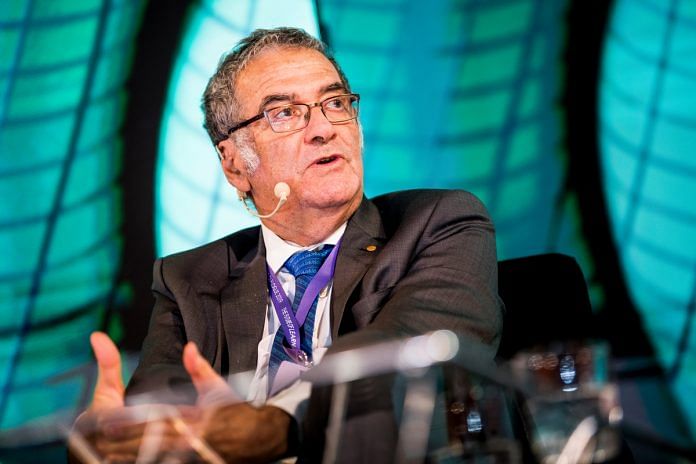New Delhi: The world is nowhere close to developing realistic quantum computers and humans may not even have computing machines close to what has been imagined in another 20 years, says Nobel laureate Serge Haroche.
Haroche was in New Delhi last week as part of a three-day ‘Nobel Prize Series India 2019’ programme organised jointly by the Nobel Media and Indian scientific agencies such as the Department of Science and Technology (DST) and the Department of Biotechnology. The event, also held in Ludhiana and Mohali, saw Nobel laureates interacting with local students and teachers.
Unlike existing machines, quantum computing takes advantage of the subatomic particles to exist in more than one state at any time. Because of how these tiniest of particles behave, operations in quantum computers can be done much more quickly.
“Quantum physics is everywhere, it is the stuff we are made of. To understand ourselves we need to understand quantum physics. Even biology has quantum physics – the structures of molecules are governed by quantum physics. The idea of a quantum computer is to try to explore the principles of quantum physics to achieve what computers based on classical mechanics cannot do,” Haroche told ThePrint.
The problem, however, lies in the fragility of quantum systems. A number of phenomena in quantum physics can be explained theoretically but not measured by experiments. If one tries to measure quantum particles, such as photons, the system is disturbed and no longer exhibits the same properties.
This proves to be one of the biggest challenges of quantum computing, Haroche explained.
The French physicist had won the 2012 Nobel Prize for Physics, jointly with David J. Wineland, for “ground-breaking experimental methods that enable measuring and manipulation of individual quantum systems”.
‘Not sure if we will have computers as imagined’
Quantum physics can be used for very powerful computing but Haroche said that in bigger machines this “quantumness” is easily lost.
The challenge lies in building a machine that is protected from interference from the surrounding environment, but at the same time takes input information from the outside world.
“So this is a contradiction — you want to isolate the system, but also want to work on it,” he said.
While technology has now allowed scientists to trap and observe singular particles, and show that their behaviour corresponds to the theoretical understanding of quantum physics, humans are still not close to building working quantum computers, the physicist added.
“We are not even sure if we will have a machine the way it is described in the media, or the way it is advertised by private companies which have started working in this field,” he said.
Haroche, however, added that there has been some progress in the past few years. “Some people say that quantum computing will be a reality in 20 or 30 years, but if you ask me, no one knows what will happen in 20 years,” he said.
India to invest Rs 5,000 crore
The Ministry of Science and Technology is planning to invest up to Rs 5,000 crore over the next five years in developing quantum science and technology in India.
Speaking at a press briefing last week, DST Secretary Ashutosh Sharma had acknowledged that the government’s ‘Quantum Science and Technology Mission’ is a “high-risk” investment that may or may not yield desired results.
Sharma had told journalists that “India has missed the bus” when it came to semi-conductor and Lithium-ion battery technologies. Semiconductor technologies continue to be imported, he said.
The secretary further added that India’s future with respect to science and technology can only be secured by investing in fields that may not have guaranteed results.
The DST now hopes to encourage scientists into working in fields that might lead to paradigm breakthroughs, so that India does not have to rely on Western countries for latest computing technologies in the future.



